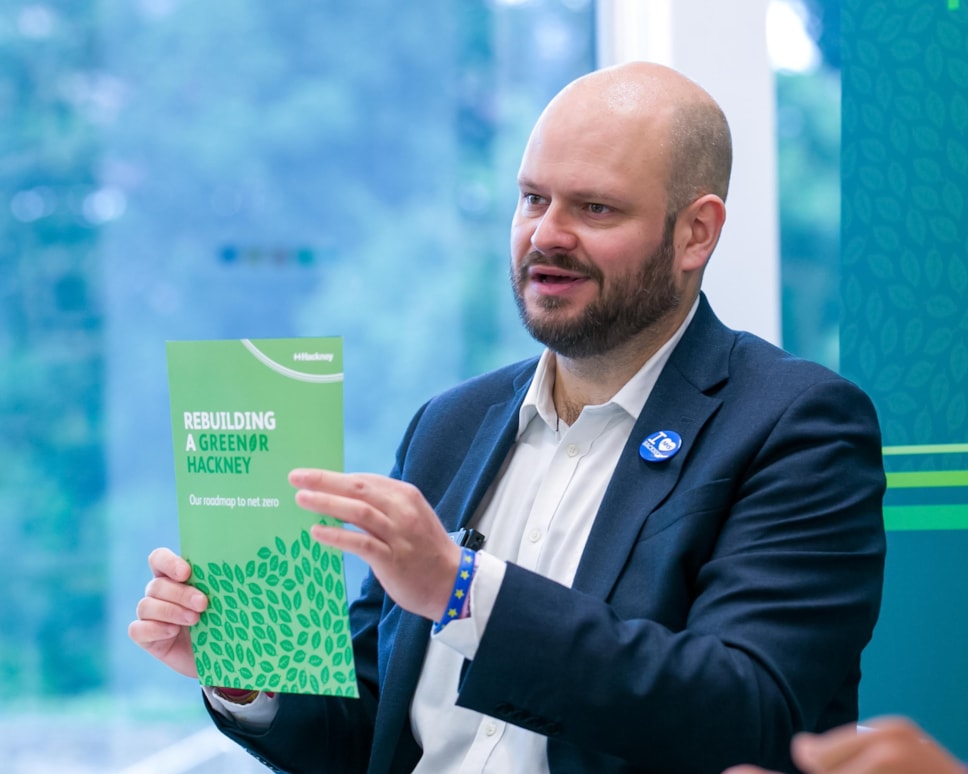
‘Failing to set a climate example for the world to follow’ – Mayor responds to Budget 2021
Mayor of Hackney Philip Glanville responds to the Autumn Budget and Spending Review 2021 delivered by the Chancellor in the House of Commons this afternoon.
Hackney’s budget context
Like many other councils across the country, Hackney Council is managing a significant budget challenge this financial year. The Council’s Budget for 2021/22 included out a range of investments to continue to support vulnerable residents. It sadly also included a rise of 4.99% in Council Tax to help fill a £58million gap in funding for frontline services, in part caused by 11 years of core government funding cuts.
The increase in council tax helped to address government cuts which have seen the Council’s core grant shrink by half since 2010, whilst demand for services has increased dramatically. Without real long-term investment, local residents will continue to see the burden shift to Council Tax to meet shortfalls in areas like adult social care.
Hackney still has one of the lowest Council Tax rates in London, and the Council has put extra money into supporting the thousands of working-age households on the lowest incomes, and who already receive up to a 85% discount, by reducing their bill by a further £60 a year. An extra £900,000 has also been invested this year in tackling inequality and poverty.
Just days before world leaders come to the UK for a once-in-a-lifetime opportunity to tackle our climate crisis, today’s Budget demonstrated again the widening gap between the Government's ambition and the financial decisions they make.
Cutting taxes on domestic flights and freezing fuel duty – two of the biggest green taxes our country has – are the actions of a Government living in an alternate reality while our planet’s climate is at breaking point, and encourages further pollution on our roads.
This was also the Chancellor’s chance to help families struggling in fuel poverty with rising bills right now, as well as show leadership ahead of COP26. Home energy use produces 267,000 tonnes of carbon in Hackney every year, but we got little investment to tackle fuel poverty and make every home in the borough cosy and carbon neutral. There was also no new funding to help retrofit social housing either – leaving a huge gap in the funding needed to create warmer and more energy efficient Council homes for our tenants.
Families in Hackney face a cost of living crisis of higher energy bills, rising supermarket prices and now higher taxes on those on the lowest incomes. Despite this, the Chancellor today did not heed our call to simply reverse his £20 a week to Universal Credit, and the changes he announced today will not do enough to help our poorest and most vulnerable residents.
The Government must remember that places like Hackney have some of the most deprived neighbourhoods in the country, and levelling up the country shouldn’t mean levelling down London. Today was a failed opportunity to demonstrate that.
That means despite vaunted promises about new ‘family hubs’, the sad reality of 11 years of austerity means we’re having to consult on closing two of our existing children’s centres in Hackney. We broadly welcome desperately needed investment in special educational needs, and will study the detail of today’s announcement to make sure this funding will tackle the huge deficit councils have developed in the last few years and is accessible to all schools – not just free schools.
We welcome the Chancellor’s announcement on public sector pay rises for our hardworking staff, but this must be included in the funding settlement we receive from the Government, otherwise this risks deepening the financial pressures faced by councils like Hackney. It is positive to hear about business rates relief for our small businesses, following our years of campaigning for a fairer business rates system – this will finally help our town centres and high streets.
Tackling the climate emergency is not a task that can be put off until tomorrow. Next week the Prime Minister will ask global leaders to make huge commitments in carbon reduction. Today the Chancellor failed to set an example for the world to follow.Philip Glanville, Mayor of Hackney
